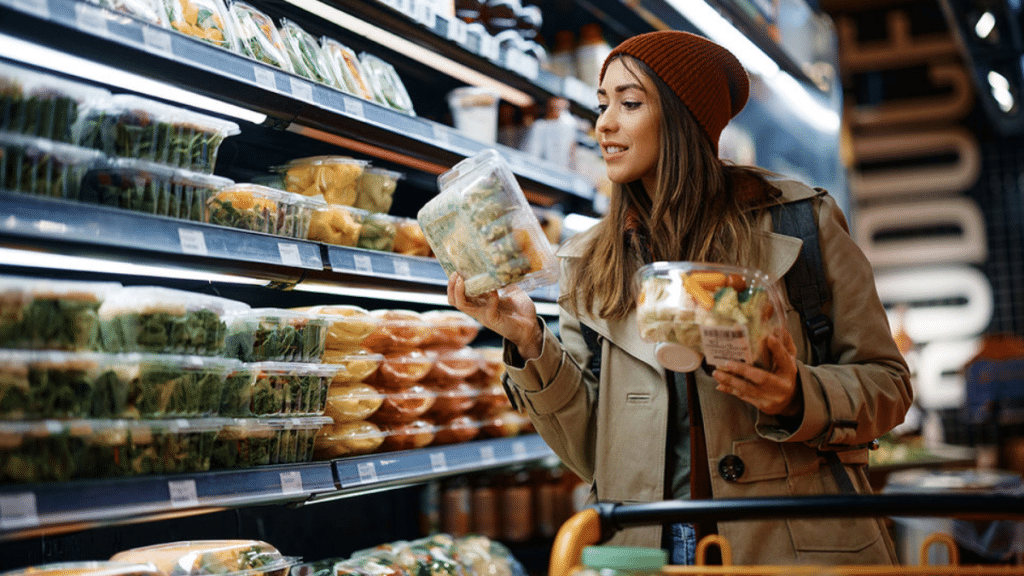Food packaging does more than just protect products during transport. It plays a crucial role in preserving freshness, maintaining nutritional value, and ensuring consumer safety. From preventing contamination to extending shelf life, the integrity of packaging directly affects the quality of food products that reach consumers’ tables.
For manufacturers, packaging is also a symbol of trust. A well-sealed package reassures consumers that the product inside is safe to eat and has been handled responsibly. In competitive markets, strong packaging integrity is not just a technical requirement—it is a strategic advantage that influences purchasing decisions and brand loyalty.
Risks of Poor Packaging Integrity
When food packaging fails, the consequences can be serious. Even a tiny leak in a seal can lead to spoilage, contamination, or exposure to harmful bacteria. The risks include:
- Spoilage and Waste: Poor seals let in air and moisture, reducing shelf life and increasing food waste.
- Health Risks: Compromised packaging raises the risk of foodborne illnesses, which can have severe public health impacts.
- Financial Losses: Recalls due to packaging failures are costly, requiring manufacturers to absorb losses and manage damage control.
- Reputation Damage: Once consumer trust is lost, it is difficult to win back, especially in the food industry where safety is paramount.
In short, packaging integrity is both a quality control measure and a safeguard for brand reputation.
Methods for Checking Food Package Seals
Manufacturers use a variety of methods to test packaging integrity and ensure seals are reliable. Traditional techniques include visual inspections and manual checks, but these are prone to human error and can miss microscopic leaks or weaknesses.
Modern approaches employ more advanced technologies such as vacuum chambers, bubble leak testing, and automated inspection systems. These methods are faster, more reliable, and capable of detecting flaws invisible to the naked eye.
Using Seal Integrity Testing Tools
One of the most effective ways to verify packaging safety is through specialized tools like a food package seal checker. These systems are designed to test packaging seals under controlled conditions, identifying weaknesses before products reach the market. By detecting micro-leaks and ensuring seals remain intact, food package seal checkers help manufacturers maintain consistent quality, reduce waste, and guarantee consumer safety.
Integrating such tools into quality control processes ensures every package meets both industry standards and consumer expectations.
Regulatory Standards and Compliance
Food packaging is subject to strict regulatory requirements around the world. Agencies such as the U.S. Food and Drug Administration (FDA) and the European Food Safety Authority (EFSA) require that packaging maintain product safety throughout its shelf life. Standards like ISO 11607 also provide guidelines for seal integrity testing and validation.
Compliance is not just about avoiding penalties; it is about protecting consumers and maintaining credibility. For businesses, demonstrating adherence to these standards builds trust with retailers, regulators, and consumers alike.
Leak detection and seal integrity testing are integral parts of compliance, ensuring that packaging systems can consistently perform as expected.
Packaging Integrity and Sustainability
As consumers and regulators push for more sustainable packaging, manufacturers are turning to eco-friendly materials such as biodegradable films, recyclable plastics, and compostable packaging. While these innovations reduce environmental impact, they also introduce new challenges. Sustainable materials can sometimes be thinner or less durable, increasing the risk of leaks or seal failures.
This makes quality testing even more important. Tools like food package seal checkers ensure that environmentally friendly packaging performs as reliably as traditional options. By combining sustainability with integrity, manufacturers can meet consumer demand for greener products without compromising on safety.
The Role of Leak Detection Across the Food Supply Chain
Leak detection and seal testing are not limited to the factory floor—they have value throughout the supply chain. From production and storage to transport and retail, packages encounter multiple stressors. Temperature changes, stacking pressure, and rough handling can all put seals to the test.
By ensuring strong seals before distribution, manufacturers minimize the risk of failures later in the chain. Retailers benefit from fewer product losses, while consumers enjoy food that arrives fresh, safe, and intact. This chain of reliability strengthens trust at every stage, from producer to consumer.
The Future of Food Packaging Integrity
The future of food packaging is moving toward smarter, data-driven quality control. Automation is already transforming seal inspection processes, enabling real-time checks at high speeds. Artificial intelligence and machine learning will soon enhance these systems, analyzing inspection data to predict failures and improve packaging design.
Smart packaging technologies may also play a role, with embedded sensors monitoring freshness and seal integrity during transport. As regulations tighten and consumer awareness grows, advanced seal testing will become standard practice across the food industry.
Sustainability will also continue to influence packaging design, requiring innovative solutions that balance eco-friendliness with uncompromising safety.
Protecting Consumers Through Packaging Integrity
Packaging integrity is a cornerstone of food safety. It protects consumers, preserves freshness, and upholds brand reputation. Failures in packaging can lead to waste, recalls, and health risks—but with the right testing methods, these risks can be minimized.
Advanced tools like the food package seal checker empower manufacturers to identify weaknesses early, ensure compliance, and maintain consumer trust. By investing in robust seal integrity testing, businesses can deliver products that are not only safe and fresh but also aligned with sustainability goals.
In an industry where consumer trust is everything, strong seals are more than just a technical requirement—they are the foundation of food safety, quality, and long-term success.

